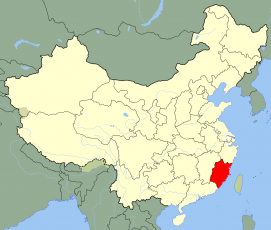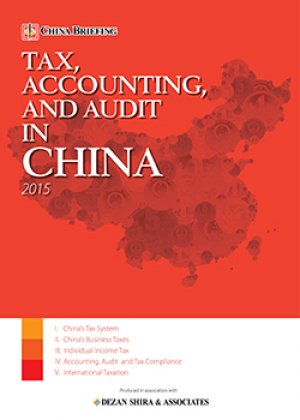The New Free Trade Zones Explained, Part IV: Fujian
 By Dezan Shira & Associates
By Dezan Shira & Associates
Editor: Rainy Yao
Following the opening of the Shanghai Free Trade Zone (FTZ), China recently launched three new FTZs in Guangdong, Tianjin and Fujian, along with the release of the Negative List for Foreign Investment applicable to the four FTZs.
In this last part of the Free Trade Zone series, we concentrate on the Fujian FTZ, which mainly aims to strengthen the province’s cooperation and economic ties with Taiwan and further open up its financial sector for foreign investment. The beneficial policies that stimulate integration with Taiwan offer interesting opportunities for foreign investors that also have a presence there.
Geographic Scope
The Fujian FTZ covers an area of 118.04 square kilometers and consists of the three following, pre-existing development zones:
- Pingtan Area (43 square kilometers)
Major industries: tourism, trade and investment - Xiamen (43,78 square kilometers, including Xiangyu Bonded Zone and Xiamen Haicang Bonded Port)
Major focus: China-Taiwan regional financial services and regional aviation - Fuzhou (31.26 square kilometers, including Fuzhou Bonded Zone, Export Processing Zone and Fuzhou Bonded Port)
Major industries: advanced manufacturing, aviation and professional services
Simplified Establishment and Customs Clearance Procedures
The Fujian FTZ will be the first one to implement the “one-form application” system, which allows enterprises to simply fill in an application form online to set up a company. All the investor then has to do is pick up the business license. This is a very significant streamlining of the company set-up process.
The zone will implement simplified customs clearance procedures exclusively for goods imported from and produced in Taiwan. The pre-entry customs inspection and quarantine for imported goods from Taiwan will be cancelled, except for prohibited and restricted goods including dangerous chemicals. The import approval procedures will be simplified for Taiwanese-made health products, cosmetics, medical devices and Chinese traditional medicine. Further, motor vehicles with Taiwanese license plates may enter Pingtan freely with a temporary license plate, issued by local police.
Investment and Trade Liberalization between China and Taiwan
Taiwanese investors are allowed to engage in crop selection and production of crop seeds (except GM products) with a Chinese controlling party. This industry is otherwise listed as prohibited on the FTZ Negative List.
- Taiwanese service providers are allowed to set up joint ventures (JV) or wholly foreign-owned enterprises (WFOEs) to carry out offshore call center businesses and provide telecom services.
- Taiwanese investors may set up WFOE sailor dispatch institutions in the FTZ and provide sailor dispatch services to commercial ships owned by Taiwanese, without the establishment of a shipping management enterprise.
- Taiwanese-invested JV travel agencies (capped at a number of three) are now allowed to provide Taiwan group travel services for Fujian residents; Taiwanese tour guides who have lived in the FTZ for over one year will be allowed to take the Chinese tour guide exam and work in China.
- Taiwanese construction WFOEs are encouraged to undertake construction projects in Fujian province.
- Eligible Taiwanese accountants are allowed to establish intermediary agencies to provide bookkeeping services.
- Eligible Taiwanese investors may provide online data processing and transaction processing services (e-commerce business only) in the FTZ.
![]() RELATED: China Eases Currency Controls, Allowing Free Exchange of Foreign Currency Capital
RELATED: China Eases Currency Controls, Allowing Free Exchange of Foreign Currency Capital
Financial Industry
- Enterprises and banks that established in the FTZ are allowed to borrow foreign currency and RMB from overseas. Enterprises may convert the foreign currency borrowed from overseas into RMB.
- Banks and payment institutions in the FTZ are allowed to cooperate with overseas banks and payment institutions over cross-border payment.
- Eligible financial institutions may transfer RMB assets and sell RMB wealth management products overseas.
- Domestic future exchanges are supported to establish a futures delivery point in the Pingtan area.
- Eligible Taiwanese financial institutions are allowed to set up JV fund management companies in the FTZ. Taiwanese investors may now own over 50 percent of shares in a JV fund management company.
Tax Policies
The preferential policies that have been launched in the Shanghai FTZ such as reduced import tariffs shall be implemented in the Fujian FTZ as well. However, the Plan states that the tax incentives implemented in the Pingtan Comprehensive Bonded Zone shall not apply to the other parts of the Fujian FTZ.
Conclusion
With an aim to establish a ‘Taiwan Strait Industrial Cluster’, the Fujian FTZ will fully open up its creative and medical industries for Taiwanese investors. Meanwhile, the Free Trade Zone will also concentrate on the development of financial services industry. Coupled with faster corporate set-up procedures, the Fujian Free Trade Zone enables foreign investors to further integrate their Greater China operations, or to cut down on delivery times by using the newly available Fujian-Taiwan combination.
|
Asia Briefing Ltd. is a subsidiary of Dezan Shira & Associates. Dezan Shira is a specialist foreign direct investment practice, providing corporate establishment, business advisory, tax advisory and compliance, accounting, payroll, due diligence and financial review services to multinationals investing in China, Hong Kong, India, Vietnam, Singapore and the rest of ASEAN. For further information, please email china@dezshira.com or visit www.dezshira.com. Stay up to date with the latest business and investment trends in Asia by subscribing to our complimentary update service featuring news, commentary and regulatory insight. |
![]()
 Revisiting the Shanghai Free Trade Zone: A Year of Reforms
Revisiting the Shanghai Free Trade Zone: A Year of Reforms
In this issue of China Briefing, we revisit the Shanghai FTZ and its preferential environment for foreign investment. In the first three articles, we highlight the many changes that have been introduced in the Zone’s first year of operations, including the 2014 Revised Negative List, as well as new measures relating to alternative dispute resolution, cash pooling, and logistics. Lastly, we include a case study of a foreign company successfully utilizing the Shanghai FTZ to access the Outbound Tourism Industry.
 Adapting Your China WFOE to Service China’s Consumers
Adapting Your China WFOE to Service China’s Consumers
In this issue of China Briefing Magazine, we look at the challenges posed to manufacturers amidst China’s rising labor costs and stricter environmental regulations. Manufacturing WFOEs in China should adapt by expanding their business scope to include distribution and determine suitable supply chain solutions. In this regard, we will take a look at the opportunities in China’s domestic consumer market and forecast the sectors that are set to boom in the coming years.
 Tax, Accounting, and Audit in China 2015
Tax, Accounting, and Audit in China 2015
This edition of Tax, Accounting, and Audit in China, updated for 2015, offers a comprehensive overview of the major taxes foreign investors are likely to encounter when establishing or operating a business in China, as well as other tax-relevant obligations. This concise, detailed, yet pragmatic guide is ideal for CFOs, compliance officers and heads of accounting who must navigate the complex tax and accounting landscape in China in order to effectively manage and strategically plan their China operations.
- Previous Article A Complete Guide to 2015 Minimum Wage Levels Across China
- Next Article China to Maintain Current Local Tax Incentives for Foreigners









